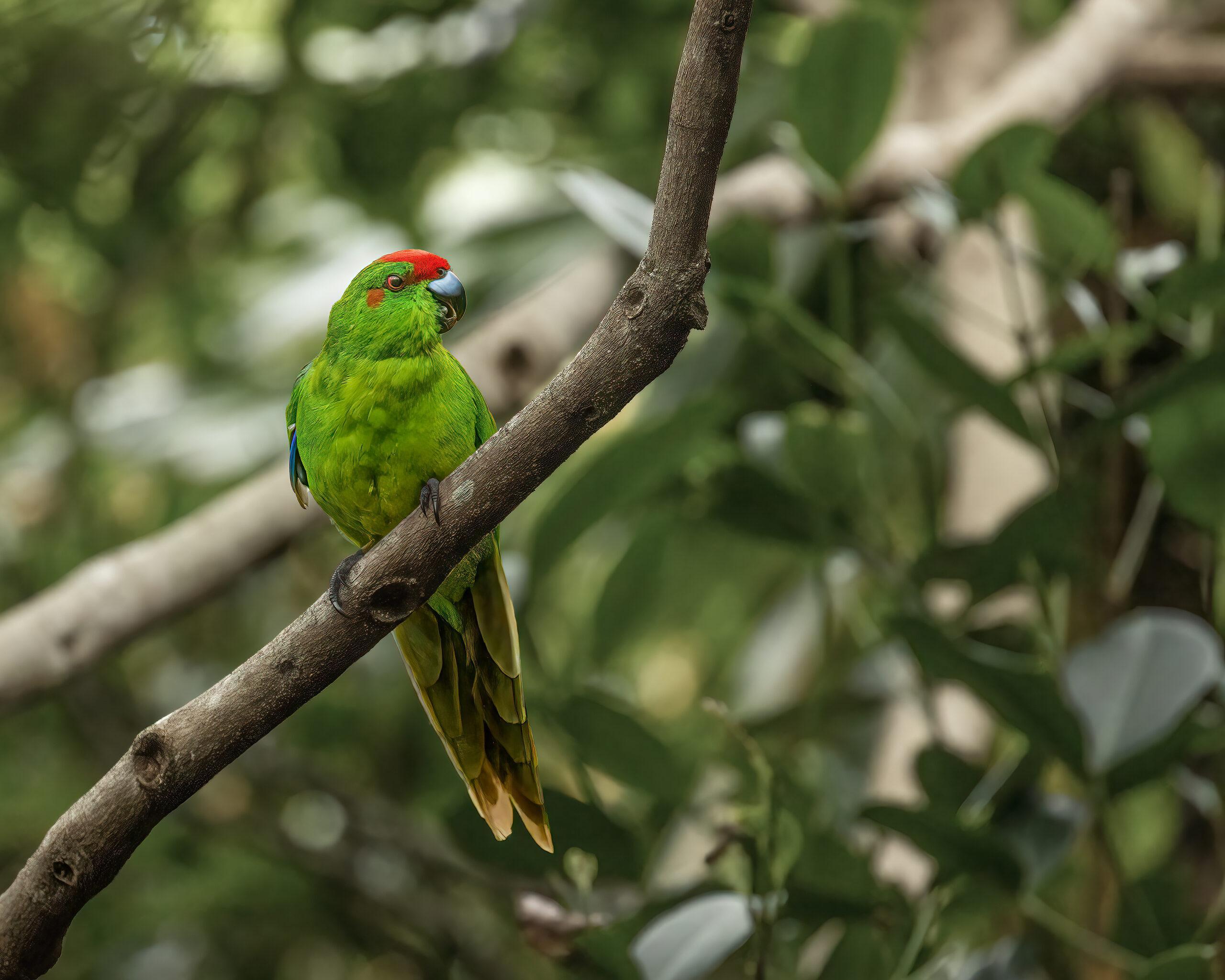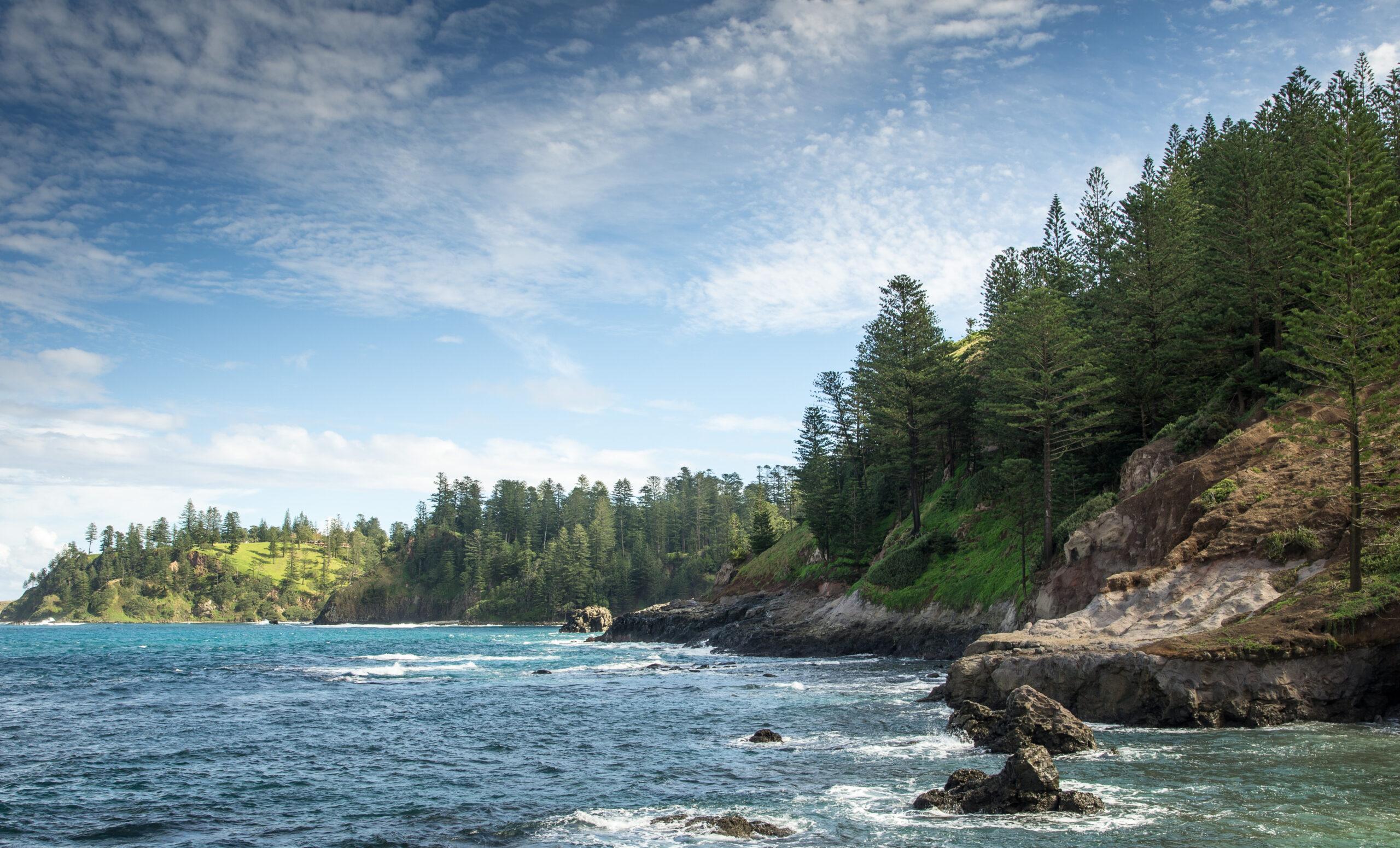Project start date: 01/09/2023
Project end date: 30/09/2027
NESP funding: $432,486 (GST-exclusive)
Predation by rats and mice is one of the most serious threats to biodiversity on islands around the world, including Norfolk Island. It affects both animals and plants, with many having been driven extinct, including birds such as the white-chested white-eye, Norfolk Island kaka and Tasman starling. Many other species face a similar fate if action is not taken. Rats are a primary threat to the Norfolk Island green parrot, a priority species under the Australian Government’s Threatened species action plan 2022–2032.

Norfolk Island green parrot. Photo: Paul W Kerr/AdobeStock.
Eradication of rodents from the island isn’t feasible. Norfolk Island National Park’s current management program of baiting throughout the park every 6 months is an expensive activity that must be maintained indefinitely. It’s essential to make sure that this control is as effective as possible. This means understanding how rodents move within the park and between adjacent areas and how those dynamics are affected by management activities.
This project is identifying the significance of rat re-invasions of control sites, determining whether control activities that are pulsed or continual yield better outcomes, investigating the roles of cats as predators of rodents and native wildlife, and assessing how these issues translate to the biodiversity on the island more broadly. This information is contributing to the development and refinement of Norfolk Island National Park’s strategy for integrated pest control and the new Norfolk Island region threatened species recovery plan.

Coastline at Kingston – Norfolk Island. Photo: Bruce/Adobe Stock.
The management of threats to island ecosystems also paves the way for full-scale ecological restoration (‘rewilding’) of those ecosystems by reintroducing species that have are locally extinct, or surrogate species to replace them. Such rewilding projects offer an optimistic agenda for conservation that enables the public to see the success that conservation offers.
Key research areas
To address the challenges presented by rodent predation on Norfolk Island, this project is:
Project leader
The project is being led by Professor Matt Hayward from the University of Newcastle. This project will contribute to 2 cross-cutting initiatives:
Contact
For further information, contact matthew.hayward@newcastle.edu.au or nesplandscapes@uwa.edu.au.
Research users
People